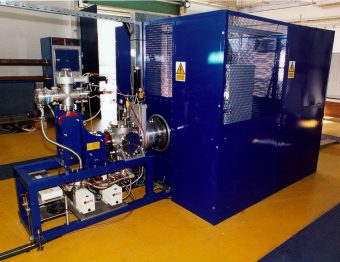
The establishment of the Centre for Excellence for Hydrogen and Renewable Energy, CONVINCE, results from systematic long-term research in materials for use in energy and environmental protection at the Vinča Nuclear Research Institute. The Centre has developed a hydrogen storage method. On a larger scale, the examination of the properties of materials with potential application in solid-state hydrogen storage occupies a special place in the Centre’s activities, primarily because of the importance that hydrogen, as an industrial raw material, has today, as well as because of the potential and future role of green hydrogen in energy and decarbonization of industry under the paradigm “hydrogen economy”. Existing applications of hydrogen range from the chemical industry, petrochemicals, methanol production, and hydrogenation of vegetable oils to the steel industry. We spoke with Jasmina Grbović Novaković, head of the CONVINCE of the Vinča Nuclear Research Institute, about the possible future application of hydrogen in the field of transport – large machines, long-range planes, ships, trains and truck transport, the development of hydrogen storage tanks and hydrogen’s advantages when used in industry and energy.
IN FOCUS:
- MY EV ROAD TRIP TO THE SOUTH OF SERBIA
- MULTIPLE BENEFITS OF BIOGAS – FROM ENERGY TO FERTILIZER
- EMPOWERING CITIZENS TO BECOME PROSUMERS OF SOLAR ENERGY
“The application of hydrogen is also possible in the energy field (long-term energy storage, continuous sources and isolated stable power supplies, industrial heat sources, etc.). Forecasts contained within the latest analyses of the development of hydrogen energy and possible applications of hydrogen are mainly based on the limitations associated with gaseous storage. This problem can be overcome by storing hydrogen in a solid state, that is, by chemically binding hydrogen in the form of metal hydrides,” says Jasmina Grbović Novaković.
Researchers have developed a solid-state hydrogen storage tank, the so-called pilot plant. How does it work, and how can the fuel of the future be applied?

Storing hydrogen in a solid state is an alternative to conventional storage methods, primarily due to eliminating safety risks. Hydrogen is chemically bound in the material from which it cannot escape without raising the temperature in controlled conditions. The storage density can be very high – with some materials, the density of stored hydrogen corresponds to storage in a gaseous state under a pressure of 600 bar. The tank, which was designed and constructed at the CONVINCE Centre, works on the principle of bonding in a solid state, with active hydride powder in the form of pressed cylinders and controlled supply and removal of heat, depending on whether the tank is being filled or emptied. Such a tank is typically coupled with a fuel cell to produce and store electricity.
How would a car which runs on solid, i.e. hybrid, hydrogen work?
Unlike electric vehicles, where electric engines are powered directly by batteries, two scenarios are possible with hydrogen vehicles. The first is the use of hydrogen in modified internal combustion engines, and the second is based on the principle of hydrogen tank-fuel cell coupling. The released electrical energy is used to power the vehicle’s electric engine. Existing technological solutions involve using gaseous hydrogen stored in composite bottles under very high pressure. Using solid-state hydrogen tanks eliminates the possibility of explosion due to mechanical damage to the tanks at hundreds of times lower working pressures, while even mechanical damage and rupture of the tank will not cause significant hydrogen leakage, even if the vehicle catches fire.
Interviewed by: Mirjana Vujadinović Tomevski
Read the story in the new issue of the Energy portal Magazine RENEWABLE ENERGY SOURCES



